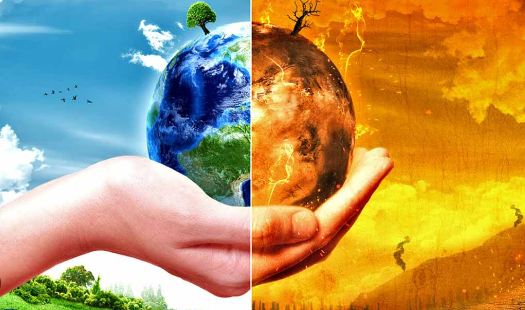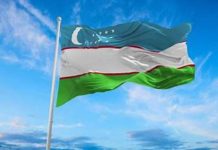Rida Shahzad
Pakistan is geographically located in a region, where the impact of climate change has been strongly felt. Climate change is one of the most leading challenge faced by Pakistan today and Pakistan is not alone in this, many developed countries are facing the same issue, making it a global issue.
Climate change has drastically affected our country leading to the issues of global warming,
heatwaves, floods and an unprecedented rise in temperature. Many factors have contributed in this
issue, those include; deforestation, air pollution and the government’s negligence and
mismanagement towards this issue.
According to Inform Risk Index, Pakistan has some of the highest disaster risk levels in the world,
ranked 18 out of 191 countries.
Climate change is more than an environmental disaster, it is also a social and economic crisis that
requires us to confront issues of inequality on many levels. Due to climate change in Pakistan,
major human health consequences can occur such as starvation, vector-borne diseases like dengue
fever and an increase in the burden of aquatic infections.
Monsoon rains triggered Pakistan’s most devastating floods in recent decades. Pakistan has been
hit by a number of floods in the past as well but 2022, floods in Pakistan submerged one third of
the country, affecting 33million people, half of them were children. As a result of those devastating
floods many people lost their lives, went missing and many of them lost their houses as well. Some
of the major factors that contributed to these floods were: the monsoon rains, intense heatwave as
well as the melting of the glaciers, all of these factors are linked to the issue of climate change in
one way or the other. As a result, the local people have urged the authorities to take more strict
actions in order to combat this issue .
UNICEF play a critical role along with other local NGO’s in providing shelters, medicine’s and
education to children affected by 2022 floods were remarkable. But ,here yet again the question
rises that why does our government fails to provide these basic health and educational facilities to
the flood affected people every single time? The reason for this is their lack of concern, they are
more interested in their political careers rather than actually doing something for the benefit of
those people.
Smog in Pakistan has become another alarming environmental concern, particularly in the urban
areas like Lahore and Karachi. This hazardous blend of smoke and fog is primarily the result of
vehicle’s emissions, industrial pollution and crop residue burning. Every year during the winter
months, the dense smog engulfs these cities, leading to health problems and reduced visibility .
Salman Kazmi, a doctor at Lahore main Mayo Hospital, advised residents to wear masks and
staying at home to avoid getting rushed to hospitals.
Environmentalist Rafi Alam said that the government policies aimed at combating are made only
in haste ,which are of no use. Government should made efforts to combat issues like smog by take
initiatives to improve air quality, promote cleaner energy sources and raise awareness about the
harmful effects of smog on all levels.
Former Foreign Minister and PPP chairman Bilawal Bhutto Zardari was at a seminar on “The
Urgency OF Action: Climate Change and it’s Implications on Human Rights in Pakistan said that
Pakistan with it’s vast landscape and rich history, was the epicenter of climate crisis and the
evidence was clear and could not be ignored. He also noticed that access to clean air and safe
drinking water were not luxuries, but basic human rights, which were as essential as freedom of
speech, promise of good education and assurance of a fair trail.
Other speakers including PPP Vice President Sherry Rehman also mentioned, that we are not the
cause of global warming. She also added that rich countries and rich people are the least to be
affected by the effects of climate change, but the developing countries and the poor are the first to
be affected. Pakistan’s former Minister for Planning and Development Ahsan Iqbal also told
reporters that “we want to showcase this to the developed world that the quality of life that people
in the west are enjoying today, someone is paying the price for it in the developing world .
Pakistan is experiencing the consequences of climate change, despite contributing relatively less
to the greenhouse gas emissions. But still, Pakistan is paying the price of the sins committed by
rich nations.

















